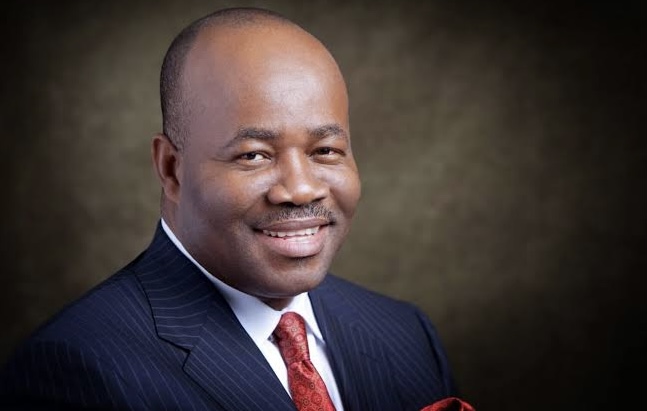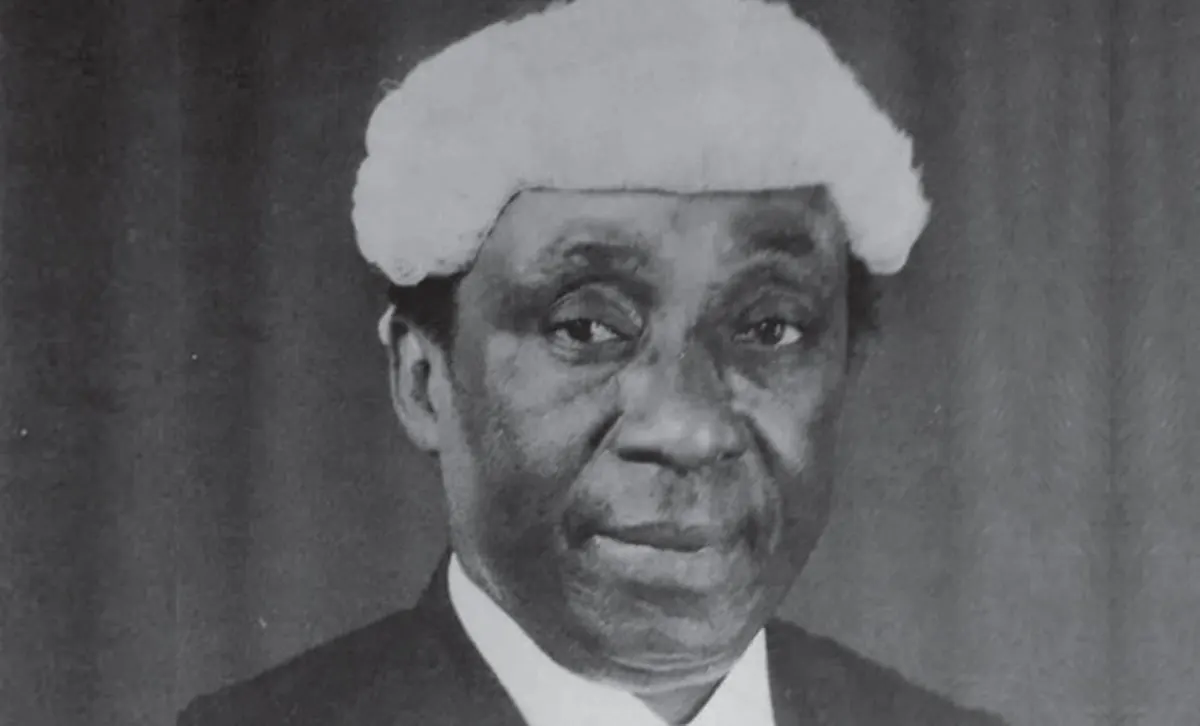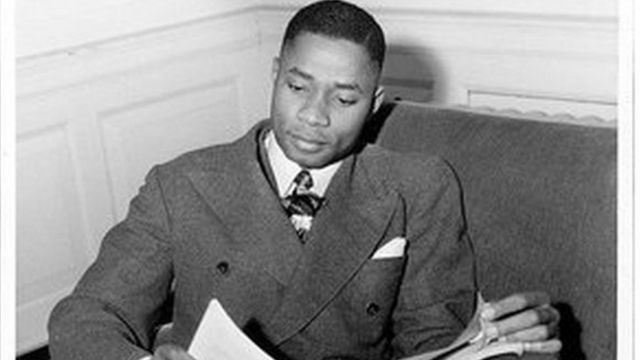Top Lists
Full List of All Nigeria Senate’s President
The Nigerian Senate’s president is a key figure in the country’s governance, ensuring effective leadership and succession planning.

As the presiding officer of the Senate, the Nigerian Senate’s president holds a vital position elected by its members. Ranking second in line of succession to the Nigerian presidency after the Vice President, Godswill Akpabio currently serves as the Senate President since June 13, 2023.
The selection process involves an indirect election within the Senate to ensure capable leadership. In case the President and Vice President are unable to fulfill their duties, the senate president assumes their responsibilities, highlighting the structured line of succession in Nigerian governance.
In this article, we’ll give you a list of all Nigeria Senate’s presidents, just follow suit:
| Rank | Name | Resumed Office | Left Office | Political Party |
| 1 | Nnamdi Azikiwe | 1 January 1960 | 1 October 1960 | National Council of Nigeria and the Cameroons |
| 2 | Dennis Osadebay | 1 October 1960 | 1 October 1963 | National Council of Nigeria and the Cameroons |
| 3 | Nwafor Orizu | 1 October 1963 | 15 January 1966 | National Council of Nigeria and the Cameroons |
| 4 | Joseph Wayas | 1 October 1979 | 31 December 1983 | National Party of Nigeria |
| 5 | Iyorchia Ayu | 5 December 1992 | November 1993 | Social Democratic Party |
| 6 | Ameh Ebute | November 1993 17 | November 1993 | Social Democratic Party |
| 7 | Evan Enwerem | 3 June 1999 | 18 November 1999 | People’s Democratic Party |
| 8 | Chuba Okadigbo | 18 November 1999 | 8 August 2000 | People’s Democratic Party |
| 9 | Anyim Pius Anyim | 8 August 2000 | 3 June 2003 | People’s Democratic Party |
| 10 | Adolphus Wabara | 3 June 2003 | 5 April 2005 | People’s Democratic Party |
| 11 | Ken Nnamani | 5 April 2005 | 5 June 2007 | People’s Democratic Party |
| 12 | David Mark | 5 June 2007 | 6 June 2015 | People’s Democratic Party |
| 13 | Bukola Saraki | 9 June 2015 | 9 June 2019 | All Progressives Congress |
| 14 | Ahmed Ibrahim Lawan | 11 June 2019 | 11 June 2023 | All Progressives Congress |
| 15 | Godswill Akpabio | 13 June 2023 | Incumbent | All Progressives Congress |
1. Nnamdi Azikiwe
Nnamdi Azikiwe, also known as “Zik,” was a Nigerian leader who played a crucial role in Nigeria’s independence.
He was born in Zungeru, Niger State, to Igbo parents from Anambra State. Growing up, he learned multiple languages, including Hausa, Igbo, and Yoruba.
Azikiwe studied in the United States at various universities, and upon his return to Africa, he worked as a journalist on the Gold Coast.
As a journalist and political leader, he championed Nigerian and African nationalism. Azikiwe co-founded the National Council of Nigeria and the Cameroons (NCNC) in 1944, serving as its secretary-general in 1946.
Azikiwe became Nigeria’s first president in 1963, but his role was largely ceremonial. He later supported Biafra during the war but switched allegiance back to Nigeria. He left politics after a military coup in 1983.
2. Dennis Osadebay
Dennis Chukude Osadebay, a Nigerian politician and poet, served as the premier of the Mid-Western Region of Nigeria.
He played a vital role in establishing the region. Osadebay was a founding member of the National Council of Nigeria and the Cameroons (NCNC) and later became the leader of the opposition in the Western Region.
He became the president of the Nigerian Senate and, in 1963, became the first premier of the newly created Mid-Western Region.
3. Nwafor Orizu
Prince Abyssinia Akweke Nwafor Orizu, a Nigerian of Igbo descent, served as the President of the Nigerian Senate during the Nigerian First Republic.
He also acted as the President of Nigeria temporarily in 1965. Orizu came from the esteemed Nnewi Royal family, and his nephew currently holds the title of Igwe (King) of Nnewi Kingdom. A college of education in Anambra State, Nwafor Orizu College of Education, was named in his honor.
Orizu was initially elected as an independent candidate and later joined the National Council of Nigeria and Cameroon (NCNC). He played a pivotal role in supporting Zik’s appointment as premier of the Eastern Region.
4. Joseph Wayas
Joseph Wayas, Nigeria’s Senate President during the Second Republic, was elected on the National Party of Nigeria (NPN) platform.
He had a close relationship with President Shehu Shagari, ensuring smooth discussions and agreement on bills before their introduction.
Wayas made headlines when the Senate summoned Tony Momoh, the editor of the Daily Times, leading to a legal battle.
During a visit to the US, he was entertained by Muhammad Ali, and he played tennis with the US ambassador. Wayas left office after a coup in 1983 and went into exile, later returning in 1987.
5. Iyorchia Ayu
Iyorchia Ayu, a Nigerian politician, currently serves as the Chairman of the Peoples Democratic Party (PDP) National Working Committee. In the past, he was a Senator and the 5th President of the Nigerian Senate during the Third Republic.
Ayu held various ministerial positions under President Olusegun Obasanjo from 1999 to 2007. He played a significant role in the election campaign of President Obasanjo and was appointed as the Minister of Industry and later as the Minister of Internal Affairs.
Ayu also advocated for security pacts with neighboring countries, initiated the distribution of national identity cards, and worked on environmental issues. However, he was dismissed by President Obasanjo in 2005.
6. Ameh Ebute
Ameh Ebute, a Nigerian lawyer and politician, held the position of the 6th President of the Nigerian Senate in the Third Republic.
7. Evan Enwerem
Evan Enwerem, a Nigerian politician and member of the Peoples Democratic Party, became the 7th President of the Nigerian Senate in 1999.
He had previously served as the chairman of the Nigerian Airports Authority and as the governor of Imo State. Enwerem was elected to the Senate representing the Imo-East Senatorial Zone and secured the Senate presidency with support from President Olusegun Obasanjo.
However, allegations of corruption led to his removal from office in 1999. He remained a senator until 2003.
8. Chuba Okadigbo
Chuba Okadigbo, a Nigerian politician, philosopher, academic, and writer, served as the 8th President of the Nigerian Senate from 1999 to 2000.
He held various political positions and was known for his opposition to the ruling Peoples Democratic Party led by President Olusegun Obasanjo.
Okadigbo was appointed as a political adviser to President Shehu Shagari in 1979 and later elected to the Senate in the Third Nigerian Republic. He became Senate President after the impeachment of Evan Enwerem but was later charged with corruption and impeached himself.
In 2002, he joined the All Nigeria Peoples Party as Muhammadu Buhari’s running mate in the 2003 Presidential elections.
9. Anyim Pius Anyim
Anyim Pius Anyim, a Nigerian politician, held significant positions in the Nigerian government. He served as the 9th President of the Nigerian Senate from 2000 to 2003 and was appointed as the Secretary to the Government of the Federation (SGF) during Goodluck Jonathan’s presidency.
Anyim was elected as a Senator for Ebonyi South constituency in 1999 and became the Senate President in August 2000 following Chuba Okadigbo’s impeachment.
Throughout his tenure, he engaged in various activities, such as probing the Mines and Power Ministry and attempting to impeach President Olusegun Obasanjo.
10. Adolphus Nduneweh Wabara
Adolphus Nduneweh Wabara, a Nigerian politician and diplomat, held the position of the 10th President of the Nigerian Senate from 2003 to 2005.
He was a prominent member of the Peoples Democratic Party (PDP) and had previously served as a member of the House of Representatives for Abia State.
Wabara’s educational background in the Soviet Union equipped him with expertise in international relations. As a senator, he played a crucial role in advocating for the improvement of the Nigerian military and police, as well as addressing the challenges faced by the Niger Delta region.
11. Ken Nnamani
Ken Ugwu Nnamani, a Nigerian politician, held the position of the 11th President of the Nigerian Senate from 2005 to 2007.
As a member of the Peoples Democratic Party (PDP), he was elected to represent Enugu East Senatorial District in the Senate from 2003 to 2007.
During his tenure, Nnamani served as the Chairman of the Committee on Federal Character & Governmental Affairs and played significant roles in committees focused on Privatization, Federal Capital Territory, and Appropriation & Finance. He assumed the presidency of the Senate after Adolphus Wabara stepped down due to corruption allegations.
Nnamani emphasized the importance of credible elections for a diverse country like Nigeria, stating that the 2007 elections were crucial for the nation’s democratic progress.
12. David Mark
David Alechenu Bonaventure Mark, a retired Nigerian brigadier general and politician, held the position of the 12th President of the Nigerian Senate from 2007 to 2015.
He served as the Senator for Benue South senatorial district from 1999 to 2019, representing the Peoples Democratic Party (PDP).
Before his political career, Mark served as the military Governor of Niger State and held the position of Minister of Communication. He is the longest-serving president in the history of the Nigerian Senate. Mark emphasized the importance of unity and prioritizing the interests of the Nigerian people during the review of the Nigerian Constitution.
He also made remarks about the state of corruption in Nigeria’s National Football Federation, suggesting the need for restructuring. In 2018, he expressed his aspirations to become a presidential candidate and appointed campaign staff.
13. Bukola Saraki
Abubakar Bukola Saraki, a Nigerian politician, served as the 13th President of the Nigerian Senate from 2015 to 2019.
Before that, he was the governor of Kwara State from 2003 to 2011. Saraki was elected to the Senate in 2011 as a member of the Peoples Democratic Party (PDP), and later re-elected in 2015 under the All Progressives Congress (APC).
He actively supported important causes, such as health, food security, education, and the environment during his Senate presidency, while also addressing the challenges posed by Boko Haram.
14. Ahmed Ibrahim Lawan
Ahmad Ibrahim Lawan, a Nigerian politician and professor, held the position of the 14th President of the Nigerian Senate from 2019 to 2023. He represents the Yobe North Senatorial District as a member of the All Progressives Congress.
Prior to his Senate presidency, Lawan served as a member of the House of Representatives and was elected as a senator multiple times. In 2019, he was elected as the Senate President after a previous unsuccessful attempt in 2015.
15. Godswill Akpabio
Chief Godswill Obot Akpabio, a Nigerian lawyer and politician, currently serves as the 15th President of the Nigerian Senate.
He previously served as a Senator representing Akwa Ibom North-West Senatorial District from 2015 to 2019 and again from 2023.
Akpabio also held the position of Minister for Niger Delta Affairs from 2019 to 2022. Prior to that, he served as the governor of Akwa Ibom State from 2007 to 2015.
Conclusion
In conclusion, the president of the Nigerian Senate holds a significant position as the presiding officer elected by its members, playing a crucial role in the country’s governance and succession planning.
More Articles on RNN:
Top 10 Richest Yoruba Celebrities 2023
Meet the 10th Senate President of Nigeria – Godswill Akpabio
BREAKING NEWS: Senator Akpabio elected 10th Senate President



